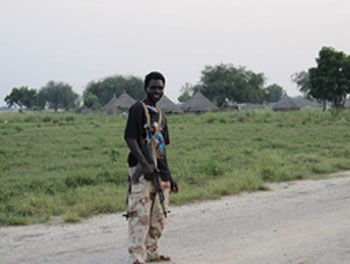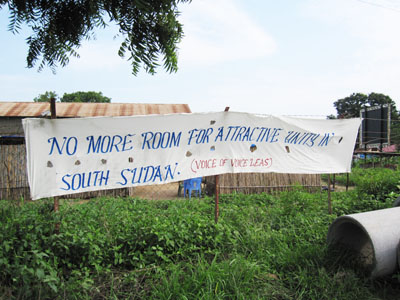
In less than six months, the people of southern Sudan will vote in a self-determination referendum that is expected to result in the secession of the South roughly a year from now. The dynamics shaping the historic and dramatic changes in Sudan are fluid, yet some of the core issues facing southern Sudan will endure regardless of the outcome of the referendum. Because these issues are likely to be flashpoints for conflict within the South in the years to come, international actors engaged in Sudan must now closely monitor and address them during the pre-referendum period. In her last field dispatch for Enough, southern Sudan field researcher Maggie Fick identifies some of these key, lesser recognized, flashpoints.

Photo Credit/Maggie Fick


